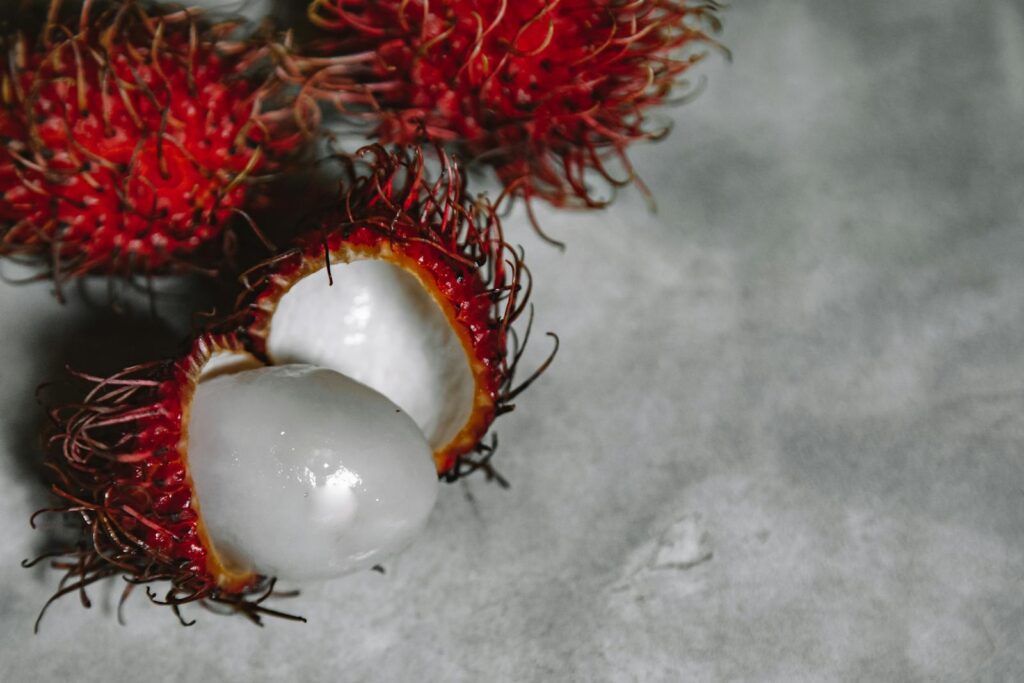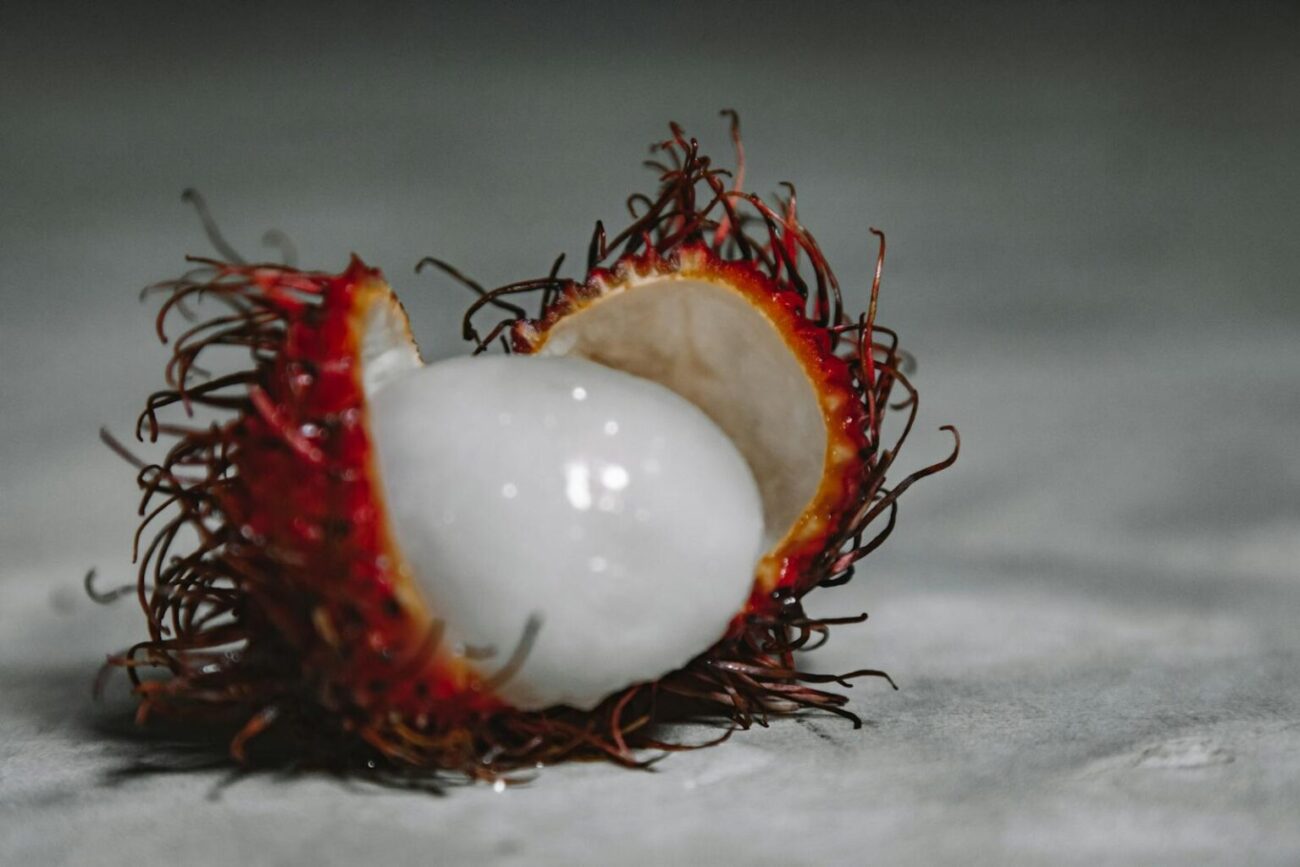Rambutan (Nephelium lappaceum) is a tropical fruit native to Southeast Asia, closely related to lychee and longan. Its name comes from the Malay word “rambut”, meaning “hair,” a nod to its spiky red-green skin. Beneath its exotic exterior lies a juicy, translucent pulp with a sweet, slightly acidic taste.
Besides being delicious, rambutan is packed with nutrients and offers a variety of health benefits.
Nutritional Properties
Rambutan is rich in essential vitamins, minerals, and bioactive compounds, including:
- Vitamin C – powerful antioxidant that strengthens immunity and supports skin health.
- B vitamins (B1, B2, B3, B9) – support energy metabolism and nervous system function.
- Minerals – manganese, iron, potassium, magnesium, zinc, and calcium.
- Dietary fiber – aids digestion and satiety.
- Polyphenols and antioxidants – fight free radicals and reduce inflammation.
- Low in calories – about 70 kcal per 100 g, making it a light, nutritious snack.
Health Benefits of Rambutan
- Boosts the immune system – vitamin C helps prevent infections and supports healing.
- Promotes healthy digestion – fiber improves bowel regularity and gut balance.
- Supports healthy skin – antioxidants and vitamin C contribute to collagen production.
- Improves iron levels – helps prevent or reduce anemia-related fatigue.
- Hydrating and refreshing – high water content makes it ideal for hot climates.
- Weight management – low in calories, filling, and naturally sweet, it’s a healthier snack option.
- Blood pressure support – potassium and magnesium contribute to cardiovascular health.
Ways to Eat Rambutan
- Fresh fruit – peel the skin and enjoy the pulp raw.
- Juices and smoothies – blends well with other tropical fruits.
- Desserts – used in fruit salads, ice creams, and jams.
- Traditional medicine – in some cultures, the rind, seeds, and leaves are used for herbal remedies (though not typically consumed raw).
Contraindications and Precautions
While generally safe and healthy, rambutan should be consumed with some caution:
- Seeds are toxic – they contain alkaloids and should not be eaten raw; cooked seeds may be used traditionally but are not recommended for casual consumption.
- Overconsumption – too much fruit may lead to digestive issues such as bloating or diarrhea due to high fiber.
- High sugar content – although natural, those with diabetes should monitor portion sizes.
- Possible allergies – rare, but allergic reactions to rambutan can occur in sensitive individuals.

Rambutan is more than just an exotic tropical fruit—it’s a nutrient-rich food that supports immunity, digestion, skin health, and overall wellness. Its juicy pulp makes for a refreshing and healthy snack, while its impressive nutrient profile makes it a valuable addition to any diet.
As with all fruits, moderation is key. Avoid the raw seeds, enjoy the sweet pulp, and let rambutan bring both taste and health benefits to your table.

